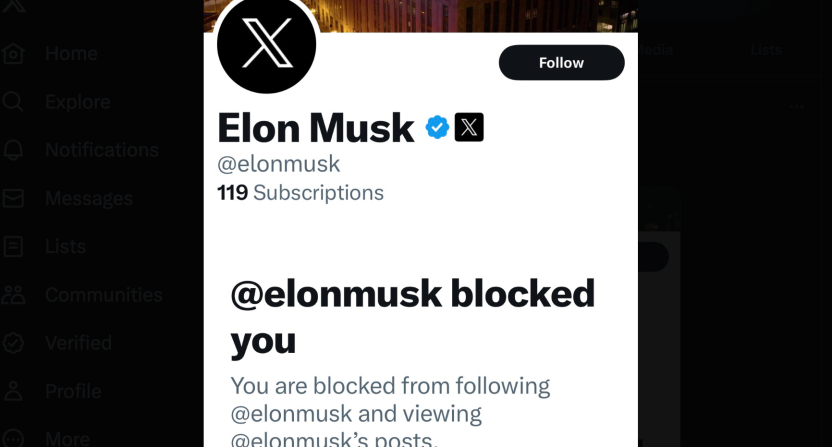Under Elon Musk’s ownership, the social platform formerly known as Twitter is rapidly changing. Many tweaks have been met with groans, mockery, and anger. Still, many of us have not abandoned the social media app—yet.
X/Twitter/Whatever-The-Hell-You-Want-To-Call-It remains useful. When you work in media, it’s a handy way to collect information and connect with people. However, Musk’s latest potential adjustment might finally push away those who rely on the product.
Last week, Musk announced that the block feature, which prevents unwanted comments from individuals, will go away. It remains uncertain if Musk has the power to do this given the apparent policies of the App Store and Google Play.
We don’t have to look too hard to find the cesspool online. Unfortunately, there are plenty of racists, misogynists, homophobes, transphobes, and general Neanderthals out there. Many are cyberspace jackwagons who hide behind anonymous avatars, using objectionable language and espousing extreme beliefs in virtual reality that they would never use in actual reality—especially directly to someone’s face.
On X/Twitter, we could try avoidance. That strategy, however, has limits. Eventually, some lout will engage with us by replying or sending a direct message. If that undesirable went too far, we could always select “block.”
https://twitter.com/molly_knight/status/1692589504140345619?s=20
Blocking is a last resort. Most in sports media are reluctant to use it. We want to engage with those with different opinions, perspectives, and values. That is how we gain understanding and a well-rounded view. Being accessible also leads to valuable tips and scoops. The downside to Twitter is the proliferation of bad actors. There are those using the platform to stir up division. Some take argument culture to a hateful place by dropping in slurs.
When that happens, we could always choose the nuclear option to block them. We don’t have to see or deal with them again on our feed. This is a Godsend. But now Musk wants to eliminate our peace of mind. If that happens, X/Twitter will become a more hostile digital place, especially for women, minorities, and LGBTQIA+ members in sports media. We are the ones who often are the target of harassment.
Just a reminder that racists get blocked.
— mike freeman (@mikefreemanNFL) May 28, 2021
Anyhoo, as you were.
Being in sports media can be fun and rewarding. The games and the athletes are the reasons we got into this business. But it is work, one that can be demanding and time-consuming. We should be allowed to do our jobs without bullying, threats, or exposure to racism, sexism, homophobia, or transphobia.
There are way too many on the platform who feel completely comfortable attacking our qualifications, belittling us, and making harmful assumptions about us. Blocking belligerents allows us to focus on our tasks and not get sidetracked and/or be mentally and emotionally drained.
X/Twitter will still have the option to “Mute,” but that’s not quite the same thing. While we will no longer see this antagonist, our followers will and that person can still reply to our comments. Blocking is the best way to remove the agitator.
We shouldn’t be surprised that Musk is insistent on doing this. When he took over X/Twitter, he reinstated many previously banned accounts. Still, it’s a curious choice that is another move that will alienate those who use his product the most. How does he expect to retain users when he makes decisions that lead to negative experiences?
This prompts another question. Is Musk getting rid of the block feature because many are blocking him? Regardless, his actions are making X/Twitter a worse neighborhood that many will want to leave.
A mass, platform-killing exodus hasn’t happened yet. If it does, Musk won’t be able to block that.
